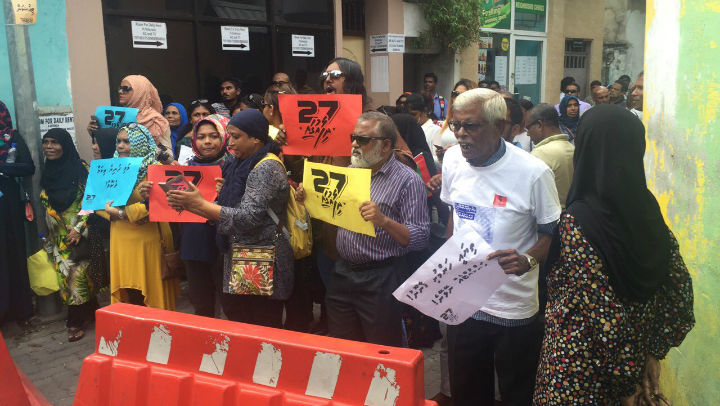Maldives MPs vote to restrict free speech
Some 47 MPs approved today a bill that imposes severe restrictions on free speech and press freedom.

09 Aug 2016, 09:00
The People’s Majlis approved Tuesday a bill imposing severe restrictions on free speech and press freedom despite widespread outrage and concern.
Some 47 MPs of the 78 present voted in favour, 31 voted No.
The bill, which recriminalizes defamation and grants regulators authority to shutter media outlets, will come into effect as soon as the president ratifies it.
Three MPs of the ruling Progressive Party of the Maldives, and one from ruling coalition partner Maldives Development Alliance voted to reject the bill. They are Faris Maumoon, Mohamed Musthafa, Mohamed Nasheed and Hussain Areef.
Become a member
Get full access to our archive and personalise your experience.
Already a member?
Discussion
No comments yet. Be the first to share your thoughts!
No comments yet. Be the first to join the conversation!
Join the Conversation
Sign in to share your thoughts under an alias and take part in the discussion. Independent journalism thrives on open, respectful debate — your voice matters.




